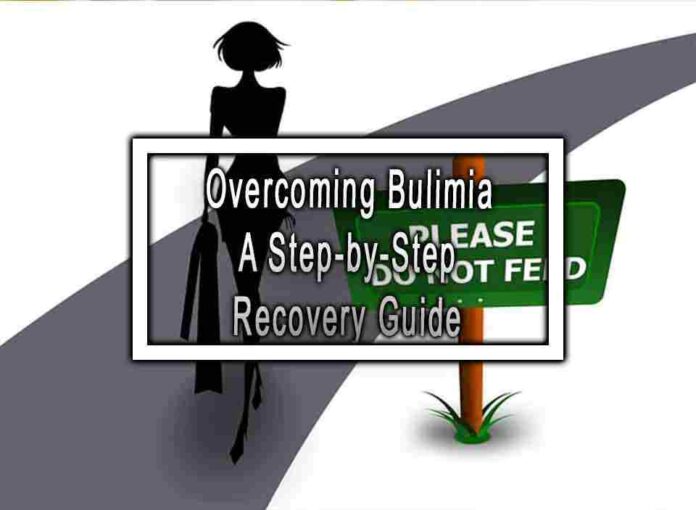Overcoming bulimia, an eating disorder characterized by binge-eating followed by purging behaviors, is a challenging process that requires commitment, support, and professional guidance. Here’s a step-by-step recovery guide to help you or someone you know on the path to recovery:
1. Recognize and Accept the Problem
– Acknowledge that you have a problem and that bulimia is negatively impacting your life, relationships, and overall well-being.
– Understand that recovery is possible and that seeking help is a brave and important step.
2. Seek Professional Help
– Consult with a healthcare professional, such as a therapist, psychologist, or registered dietitian, specializing in eating disorders.
– They can provide a proper diagnosis, assess your specific needs, and develop an individualized treatment plan.
3. Build a Support System
– Surround yourself with a supportive network of friends, family, and professionals who understand and encourage your recovery journey.
– Consider joining support groups or seeking out online communities where you can connect with others who have similar experiences.
4. Therapy and Counseling
– Engage in therapy, such as cognitive-behavioral therapy (CBT), dialectical behavior therapy (DBT), or interpersonal therapy (IPT).
– Therapy helps address underlying emotional issues, develop coping skills, challenge negative thoughts, and promote healthier behaviors and attitudes toward food and body image.
5. Nutritional Counseling
– Consult with a registered dietitian experienced in eating disorder recovery.
– Work with them to develop a balanced meal plan that suits your individual needs and supports your physical and emotional well-being.
6. Establish Regular Eating Patterns
– Create a structured meal schedule that includes regular, balanced meals and snacks.
– Avoid skipping meals, restricting food intake, or engaging in restrictive dieting practices, as they can trigger binge-purge cycles.
7. Address Body Image Concerns
– Engage in activities that promote self-acceptance and positive body image.
– Challenge societal beauty standards and focus on health, self-care, and overall well-being rather than on achieving unrealistic ideals.

8. Develop Coping Strategies
– Learn and practice healthy coping mechanisms to manage stress, emotions, and triggers that may lead to binge or purge behaviors.
– Engage in activities such as journaling, art therapy, mindfulness, meditation, or exercise, as appropriate and guided by professionals.
9. Address Underlying Issues
– Work with your therapist to explore and address any underlying emotional, psychological, or trauma-related issues that may contribute to bulimic behaviors.
– Addressing and processing these issues can support long-term recovery.
10. Practice Self-Care and Stress Reduction
– Prioritize self-care activities that promote physical, emotional, and mental well-being.
– Engage in activities that bring you joy, relaxation, and fulfillment.
– Manage stress through healthy outlets, such as exercise, spending time in nature, or engaging in hobbies.
11. Stay Committed and Patient
– Recovery is a journey that takes time, effort, and patience.
– Embrace setbacks as learning opportunities and stay committed to your recovery goals.
Remember, the recovery process may vary for each individual. It is important to work closely with healthcare professionals who specialize in eating disorders to create an individualized plan that meets your specific needs. With professional support, a strong support system, and your dedication, it is possible to overcome bulimia and achieve a healthier relationship with food and your body.











